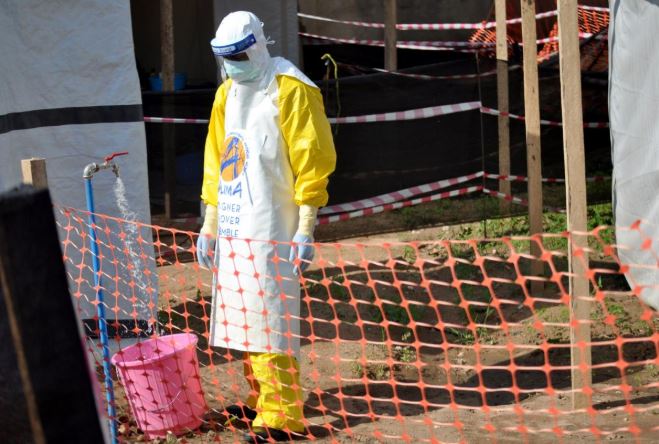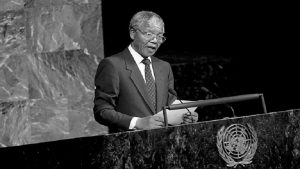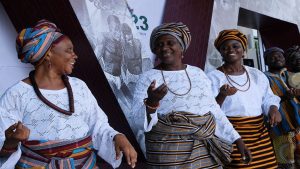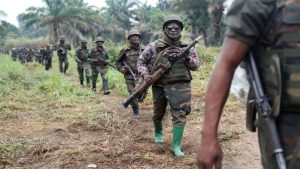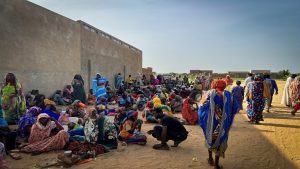New measures to overcome challenges in the response to the Ebola outbreak in the Democratic Republic of the Congo are having a positive impact, although the outbreak remains dangerous and unpredictable. That is the view of the United Nations and World Health Organisation after senior leadership visited the epicentre of the outbreak around the city of Beni, close to the Ugandan border this week.
Since the outbreak began in August, there have been 308 cases and 191 deaths, about half of which have been in Beni.
The current outbreak is in an active conflict zone in the North Kivu region, making it hard for health workers to identify and isolate cases. However, the World Health Organisation (WHO) says progress is being made.
“The disease is contracting geographically and also we see fewer cases from week to week, but that doesn’t mean that the outbreak is over. Actually, a single case could ignite it again, and that’s why we cannot say it’s over until it’s over. So, if we have even optimism, it would be a cautious optimism and having especially the confounding factor like insecurity, until is over is not over, and it will be a strong fight that will be needed; a strong and sustained fight,” says WHO Director General Tedros Ghebreyesus.
To date 27000 people have been vaccinated and new patients receive one of four investigational treatments never used before.
“In the past, when Ebola outbreak happens, the only methods we had were traditional methods, that’s starting from the infection prevention and control, and patient care, management, isolation, that’s it and now, we have vaccines, very effective vaccines, and we have therapeutics. So, that’s why I say we are better equipped.”
Soldiers from the UN Peacekeeping Mission MONUSCO have taken an active approach in quelling the violent instability in the region.
“The role of MONUSCO in supporting efforts against Ebola is quite considerable. This is expressed through various actions, both in the construction of camps for our WHO colleagues and other health partners, the supply of vehicles, the provision of air transport, in conjunction with other agencies, but the MONUSCO’s contribution was very important in this regard,” says Under Secretary General for Peacekeeping Operations Jean-Pierre Lacroix.
La Croix also stressed the importance of support from the region.
“First, to be truly effective it takes a regional commitment. We need a commitment from the countries of the entire region to dismantle the armed groups. Otherwise the chances of success are much lower. There obviously needs to be a national commitment, and as I said, we are working closely with the national authorities. There needs to be a local commitment, including communities – as my brother Tedros reminded me – because without the communities, who are suffering, who are the first victims of these groups, we cannot do anything. But obviously we also have to work on our tool, the tool of MONUSCO, our strategies, our posture, by making sure that this work is done in a very coordinated manner with our colleagues in Congo.”
Further complicating the effort, Ebola response teams also face mistrust from locals who are reluctant to allow vaccination programmes or to follow rules for safe burials. Click below for a related story:


